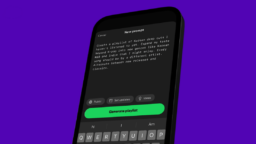Today (January 14), was supposed to provide the global music business with a major league showdown.
In the green corner: Spotify, which has been operating without a permitted license from Warner Chappell Music – the publishing company of Warner Music Group (WMG) – in India since February last year.
In the blue corner: Warner, which took Spotify to the Bombay High Court over the streaming service’s decision to launch its platform in India complete with Warner Chappell’s catalog.
Spotify contested that its use of Chappell’s catalog was protected by a statutory licence in India – one that had been previously applied to radio broadcasters; Warner argued that this proposal was nonsense, and that an injunction should be granted in the market banning Spotify from using its music (and potentially forcing the digital platform to pay out handsome damages for having already done so).
Yet, somehow, at the eleventh hour, we have a peaceful outcome: Warner Chappell and Spotify have just confirmed a fresh global licensing agreement. This deal includes India – rendering all of that Bombay High Court drama over and done with.
“We’re happy with this outcome. This new deal appropriately values our songwriters’ music and expands our licensed partnership with Spotify to include India.”
Warner Chappell spokesperson
It’s worth bearing in mind what concessions Spotify may have given up in order to get its deal with Warner Chappell over the line. Warner Chappell says it’s “happy” about the result, while Spotify says it’s “pleased”.
Yet at the height of their fallout, Warner and Spotify both used excoriating language about each other as things took a turn for the heated.
Spotify publicly accused Warner of “abusive behavior”, suggesting that the publisher’s refusal to license its service in India could “harm many non-Warner artists, labels and publishers”; Warner said it viewed Spotify’s comments as “appalling”, accusing the streaming company of lying about the case, while adding it was “shocked that [Spotify] would exploit the valuable rights of songwriters without a license”.
More importantly, Warner remained hopeful it could reach a “strong, balanced commercial agreement” with Spotify once the hoo-ha had calmed.
WMG boss Steve Cooper appeared to hint on an earnings call in February last year what “strong” and “balanced” actually meant to WMG – essentially, that Spotify’s decision to launch its Premium service for the equivalent of $1.40 per month in India (versus the typical $9.99 rate in the US) wouldn’t necessarily mean that Warner would accept a proportionate cut in rates.
In Cooper’s exact words, “In our view, the value of music should always be treated as independent from the choices that streaming platforms make about the pricing of their services and their customer acquisition strategies.”
Three months on, in Warner’s next earnings call, Cooper doubled down, stating that Warner would continue to “push back against the devaluation of our artists’ and songwriters’ music from freemium models, mismanaged family plans and other customer acquisition strategies employed by streaming platforms at the expense of creators”.
Did WMG’s strong-arm tactics in India result in better family plan / freemium ad payments for its songwriters? Maybe.
Spotify knew that, heading into today’s would-be Bombay High Court decision, certain conditions didn’t seem to be weighing in its favor.
In May 2019, a comparable case to Warner vs. Spotify – also at the Bombay High Court – went the way of a music rightsholder, when record label Tips won its lawsuit against local streaming service, Wynk.
The latter company argued it should be protected from copyright infringement via the same statutory license that Spotify cited in its Warner Chappell case.
However, Mumbai High Court judge SJ Kathawalla ruled that Wynk was “knowingly infringing upon the plaintiff’s copyrights” – potentially setting a crucial precedent for the Spotify/Warner lawsuit.
“In our view, the value of music should always be treated as independent from the choices that streaming platforms make about the pricing of their services.”
Steve Cooper, Warner Music Group (speaking in Feb 2019)
Rights holders in India will be breathing a sigh of relief as today’s announcement appears to be a tacit acknowledgement that the argument for a streaming service hiding behind a statutory license in India doesn’t hold water.
A Spotify spokesperson said of today’s settlement: “In less than a year, millions of Indian listeners have joined Spotify, listening to their favorite artists and songwriters from across the globe. We’re pleased with this agreement, and together with Warner Chappell Music, we look forward to helping songwriters and artists connect with more fans, and for more fans to enjoy and be inspired by their music.”
Warner Chappell confirmed in a statement that it had signed a fresh multi-territory licensing agreement with Spotify which includes India, and that therefore the parties have jointly asked the High Court to dismiss the pending litigation.
A Warner Chappell spokesperson added: “We’re happy with this outcome. This new deal appropriately values our songwriters’ music and expands our licensed partnership with Spotify to include India.”
Given today’s surprise announcement only mentions Warner Chappell, it’s a fair assumption that negotiations for recorded music rights between WMG and Spotify continue.
You may recall that, last summer, Spotify founder Daniel Ek proclaimed that Spotify had “reached agreement with two of our four major label partners” on the renewal of global music licenses.
MBW promptly identified these two parties as Sony Music and indie agency Merlin – meaning that the green machine was, at that stage, without a long-term agreement with either Warner or Universal Music Group.
Last month, Spotify launched a promotion that offered new and existing customers in India access to 12 months of Premium for just 699 rupees (approx $9.76) in total – the equivalent of less than $1 per month.Music Business Worldwide





